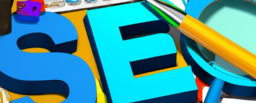In today’s digital age, the ability to code is a superpower. Whether you aspire to craft captivating games that transport players to fantastical worlds or build sleek websites that leave visitors in awe, learning to code is the first step toward turning your dreams into reality. While the journey may seem daunting at first, with the right approach and mindset, anyone can embark on the path of self-taught coding for game and website development. In this comprehensive guide, we’ll walk you through the process, from laying the foundation to mastering advanced concepts.
1. Define Your Goals
Before diving into coding, take some time to clarify your goals. Are you interested in game development, website design, or both? Understanding your objectives will help you tailor your learning path and stay focused throughout the process.
2. Choose Your Programming Language
There’s no shortage of programming languages to choose from, each with its strengths and applications. For game development, languages like C#, C++, and Python are popular choices, while HTML, CSS, and JavaScript are essential for website development. Start with one language and master it before moving on to others.
3. Lay the Foundation
Begin with the basics. Familiarize yourself with the syntax, data types, variables, and control structures of your chosen language. Online tutorials, textbooks, and interactive coding platforms like Codecademy and freeCodeCamp are excellent resources for beginners.
4. Hands-On Practice
Coding is a skill that improves with practice. Set aside dedicated time each day to write code, solve problems, and build projects. Start with simple exercises and gradually increase the complexity as you gain confidence. Remember, it’s okay to make mistakes – they’re an essential part of the learning process.
5. Build Projects
The best way to solidify your understanding of coding concepts is to apply them in real-world projects. For game development, create simple games like tic-tac-toe or pong to grasp fundamental game mechanics. For website development, design personal portfolios, blogs, or small business websites to showcase your skills.
6. Seek Feedback and Collaborate
Don’t be afraid to seek feedback on your projects from peers, mentors, or online communities like Stack Overflow and GitHub. Collaborating with others not only provides valuable insights but also fosters a sense of community and accountability.
7. Embrace Challenges
Coding is a journey filled with challenges and obstacles. Embrace them as opportunities for growth rather than setbacks. When faced with a problem, break it down into smaller, manageable tasks, and tackle them one step at a time. The satisfaction of overcoming obstacles will fuel your passion for coding.
8. Learn from Mistakes
Mistakes are inevitable, but they’re also valuable learning opportunities. When your code doesn’t work as expected, don’t get discouraged. Instead, use it as an opportunity to debug, refactor, and improve. Understanding why something went wrong is just as important as getting it right.
9. Stay Curious and Keep Learning
Technology is constantly evolving, and there’s always something new to learn in the world of coding. Stay curious, explore emerging trends and technologies, and never stop learning. Whether it’s attending workshops, reading books, or experimenting with new tools, the quest for knowledge is endless.
10. Build a Portfolio
As you gain proficiency in coding, start building a portfolio to showcase your projects and skills to potential employers or clients. A well-curated portfolio not only demonstrates your expertise but also serves as a testament to your dedication and passion for coding.
Conclusion
Learning to code for game and website development is a rewarding journey that requires dedication, perseverance, and a thirst for knowledge. By defining your goals, mastering the fundamentals, building projects, and embracing challenges, you can embark on the path of self-taught coding with confidence. Remember, the key is not just to learn how to code but to become a problem solver, a creative thinker, and a lifelong learner in the ever-evolving world of technology. So roll up your sleeves, sharpen your mind, and let the coding adventure begin!











